Our Wildbiome: the experiment & the film
If you are what you eat, what happens when what you eat is wild? We're continuing our fascinating scientific project on the health and gut significance of eating wild foods. And making a film about it
It’s been hectic recently. Spring passed in a flash and summer is slithering by damply. Next March (2025) we’re doing another phase of The Wildbiome Project, with a few differences that I’ll explain below.
First though, this weekend we are focussing on Our Wildbiome - the documentary. During the project, filmmaker Carlos Hernan filmed the foragers and recorded their experiences of switching to a wild food diet. He captured some fascinating interviews and conversations about food and what it means to reconnect with nature. This weekend we are trying to hit our goal of £8000 to pay for editing and releasing the film so that everyone can all watch it. It’s exciting. We’re so close!
Could you spare us the price of a coffee or pint of beer and donate to the film? You can watch the trailer here and donate. A huge thanks to those who can!
THE WILDBIOME PROJECT
One of the most fascinating things that came out of the whole year I spent eating wildfood, along with Matt Rooney, were our gut microbiome results. Even the lab didn’t know what to make of them. Did you know that when you move from a winter diet to one of fresh greens - including sorrel and young dock - that your Oxalobacter formigenes can increase over 1000%? Oxalobacter formigenes is a friendly gut microbe that helps you break down oxalates. I was eating a lot of oxalates when I feasted on young dock stems, sorrel and wild greens. My gut became a ‘super-responder’ and there was so much that I couldn’t explain. We also saw some interesting correlations probably caused by eating lots of mushrooms and seaweeds which are full of natural prebiotics!
A trial of one is a trial of none though. So in the spring of 2023, I managed to persuade 24 other crazy foragers to join me in eating only wild food for a proper controlled study this time - 12 did 1 month and 12 did 3 months. We raised money on GoFundMe to cover the blood tests, along with a generous donation from the Association of Foragers. We were also part-sponsored by ZOE, headed by Professor Tim Spector, the personalised nutrition company that runs the world’s largest nutrition-science study and the ZOE Health Study. The participants in the project, used the ZOE programme tests to track their health using the ZOE at-home test kit, which analyses blood sugar and blood fat responses to food and the gut microbiome.
Against the ZOE control group of people eating a standard American diet, our average gut score improvement was 13% compared to 1%. Just as fascinating was how effortlessly weight loss happened in those who were overweight, how high blood pressure came down and how blood sugar stabilised. So much so that our diabetic participant returned to a normal estimated A1C within 2 weeks. You can read the full results summary on my website here. If you prefer to listen in Dan Saladino also recorded it for BBC Radio 4s The Food Programme. There are also links to other podcasts where I’ve discussed it here.
WILDBIOME PROJECT Mark 2 ~ 2025
While we successfully answered the question Is a foraging diet better for you than a standard diet? the project raised new questions. Why did 60% of people with high cholesterol see improvements but not the other 40%? Do people of the Vata/ectomorph body type find this harder than the Kapha/endomorph types? Why was a rise in one so-called ‘bad’ bacteria a sure sign that blood sugar was improving? Why did decades of PMS in one participant vanish for the whole 3 months? What is it about this diet that helps women with lipodema? How lasting were the cognitive and mental health benefits? Given that participants doing 1 month benefitted almost as well as those doing 3 months, what difference would 2 weeks have? Perhaps there would be an improvement by just adding nettles… or dandelion leaves to your diet!
We have also been talking to some fascinating researchers in forensic archaeology at the University of Bradford. They use carbon isotopes for paleodietary reconstruction - to try to predict what people actually ate in the past, but of course, they don’t have a modern comparison. They’d like to test our hair and nails and compare them to ancient humans. Quite a few of our original forager participants have fabulous flowing locks that are long enough to still carry evidence of the last Wildbiome study. So our project may well contribute to science in some unexpected ways!
You might wonder why - having already run a project - I’d want to do it again? After all it can be tough and running and recording it is all voluntary, unpaid work! It’s because I am passionately interested in the complex issues around food sourcing and food security that we face today. Life as a forager has thrown up too many questions that defy logic. For example, is it true that all paleo diets included high amounts of fats? Not in my experience. Is it true we didn’t eat grains before farming? No, there is archaeological evidence we were eating them 600,000 years ago - when Homo sapiens was still Homo habilis!
In the UK many people think of foraging as a fad or fashion. But 1 in 5 (20%) of people around the world still depend on wild foods everyday - in sub-Saharan Africa that rises to 80% of people. Conversely, most people in Britain depend on imported food - often from countries where the Indigenous People have been forced off their land. Globally we face the uncertain of climate change, the destruction of pollinating insects, extreme poverty, natural disaster and war. During the armed conflict in which 6.2 million Syrians were displaced from their homes, two-thirds (64%) of people surveyed had increased their reliance on wild plants as a source of food. This also happened in Ukraine when entire villages were under siege.
The Wildbiome Project studies help us to both understand our modern dietary needs but importantly help us understand what would happen to our bodies in a time of crisis, if we did all have to return to eating ‘famine foods’. I’m not a prepper or paranoid, but I find the science fascinating! For me the truth is in the doing not the theorising - sorry Descartes!
So we will be running the project again in Spring 2025. We are expecting even more participants as so many people have expressed interest. If you would like to take part, and have the foraging skills (or are pairing with a skilled buddy), then please let me know via wildbiome@circadio.co.uk
In August, I will send you out an induction form. Do note that your safety is of paramount importance. If you don’t have the right skills or mentor, or if you have allergies or dietary exclusions that might cause you health problems, then you won’t be eligible to take part.
Thanks for reading this and your feedback from my last ramblings. I promise next time I will write more about my experience with the Ju|’hoansi bushmen of the northern Kalahari, with whom I lived for a month recently. The experience was so vast that it’s taken me a long time to integrate it and fully understand how it has changed my life. What a truly, wonderful people they are. There is so much we can learn from them on how to live well. Sadly however, without access to all the land they used to inhabit they have to earn money to subsidise their hunter-gatherer diet. So they gave me some of their amazing ostrich shell jewellery to sell on their behalf. All the money goes back to them and your can learn more about each maker on the item pages!
PS. Please don’t forget to donate to Our Wildbiome documentary film this weekend before the crowdfunder reaches its expiry date on Monday!
Happy foraging! Best wishes, Mo Wilde x
LOVE READING?
In case you haven’t yet read it, my book ‘The Wilderness Cure’ is now available in hardback, paperback, Kindle and on Audible as an audiobook. I’m delighted that its had such lovely reviews, including one in the prestigious Times Literary Supplement, and absolutely over the moon that it was awarded The John Avery Award for “original and adventurous writing” in the 2022 André Simon Food and Drink Book Awards.
“Mo Wilde made a quiet but radical pledge: to live only off free, foraged food for an entire year. In a world disconnected from its roots, eating wild food is both culinary and healing, social and political. Ultimately, it is an act of love and community.”
“The Wilderness Cure is a diary of a wild experiment; a timely and inspiring memoir which explores a deeper relationship between humans and nature, and reminds us of the important lost lessons from our past.”

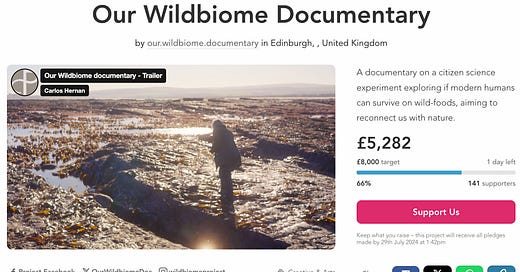




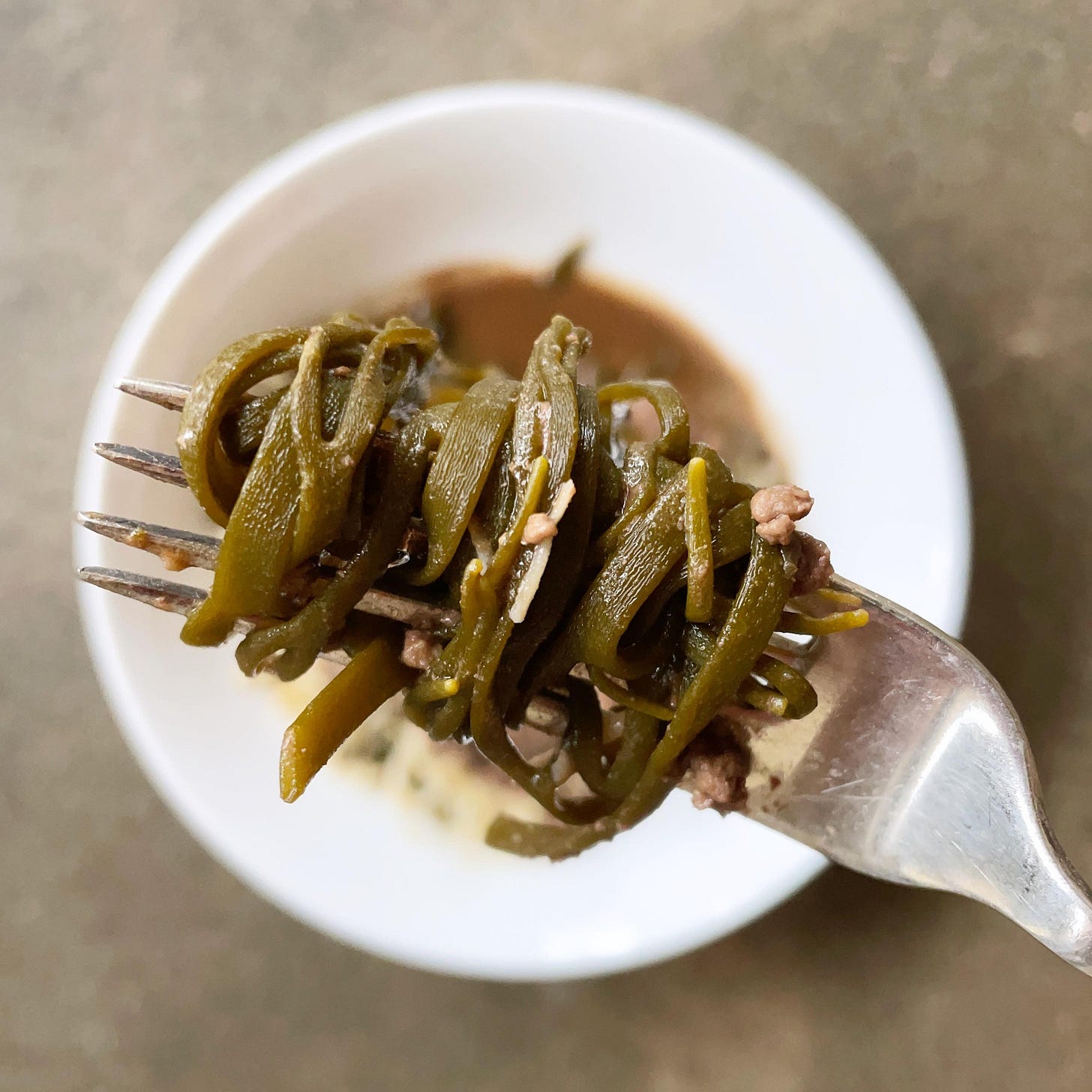
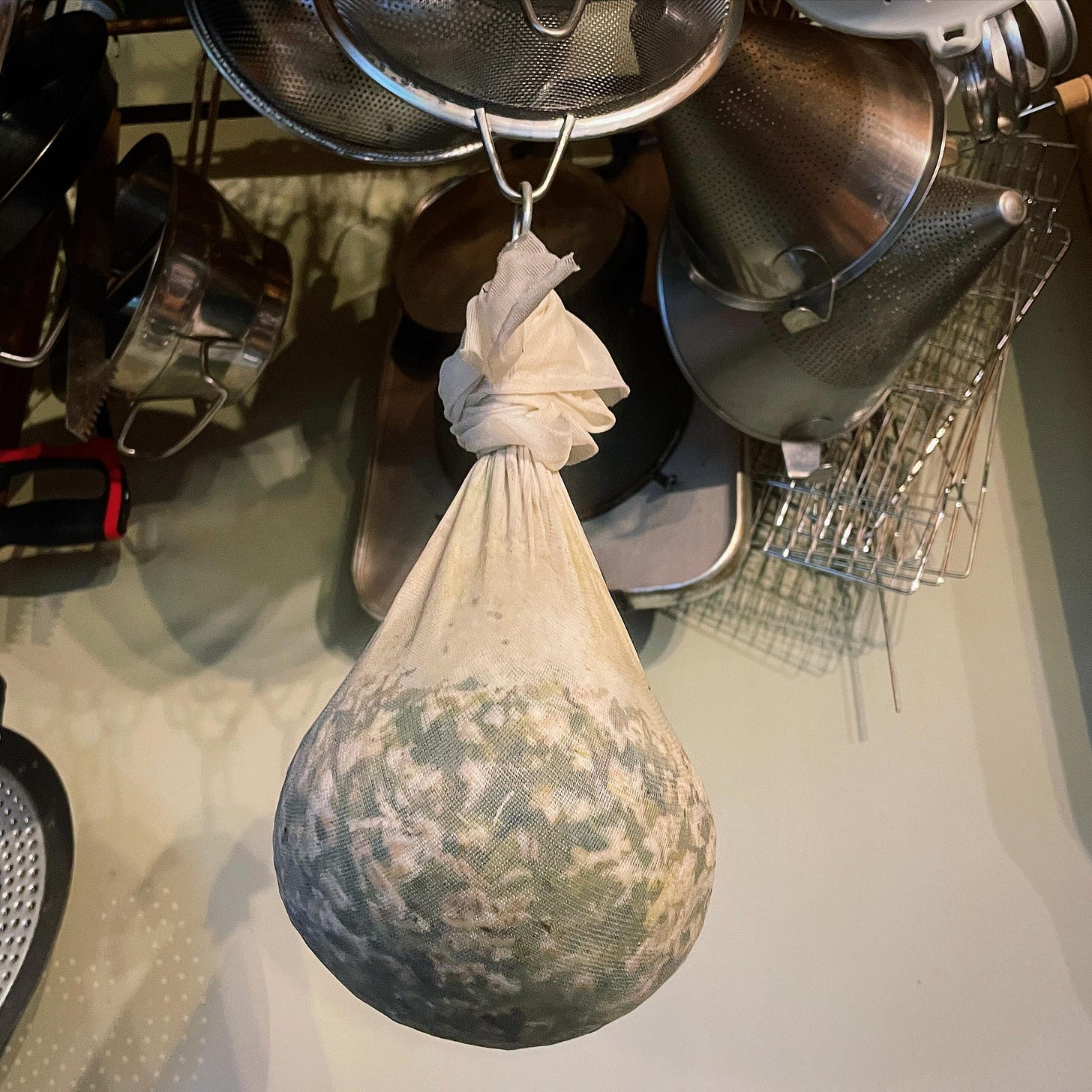

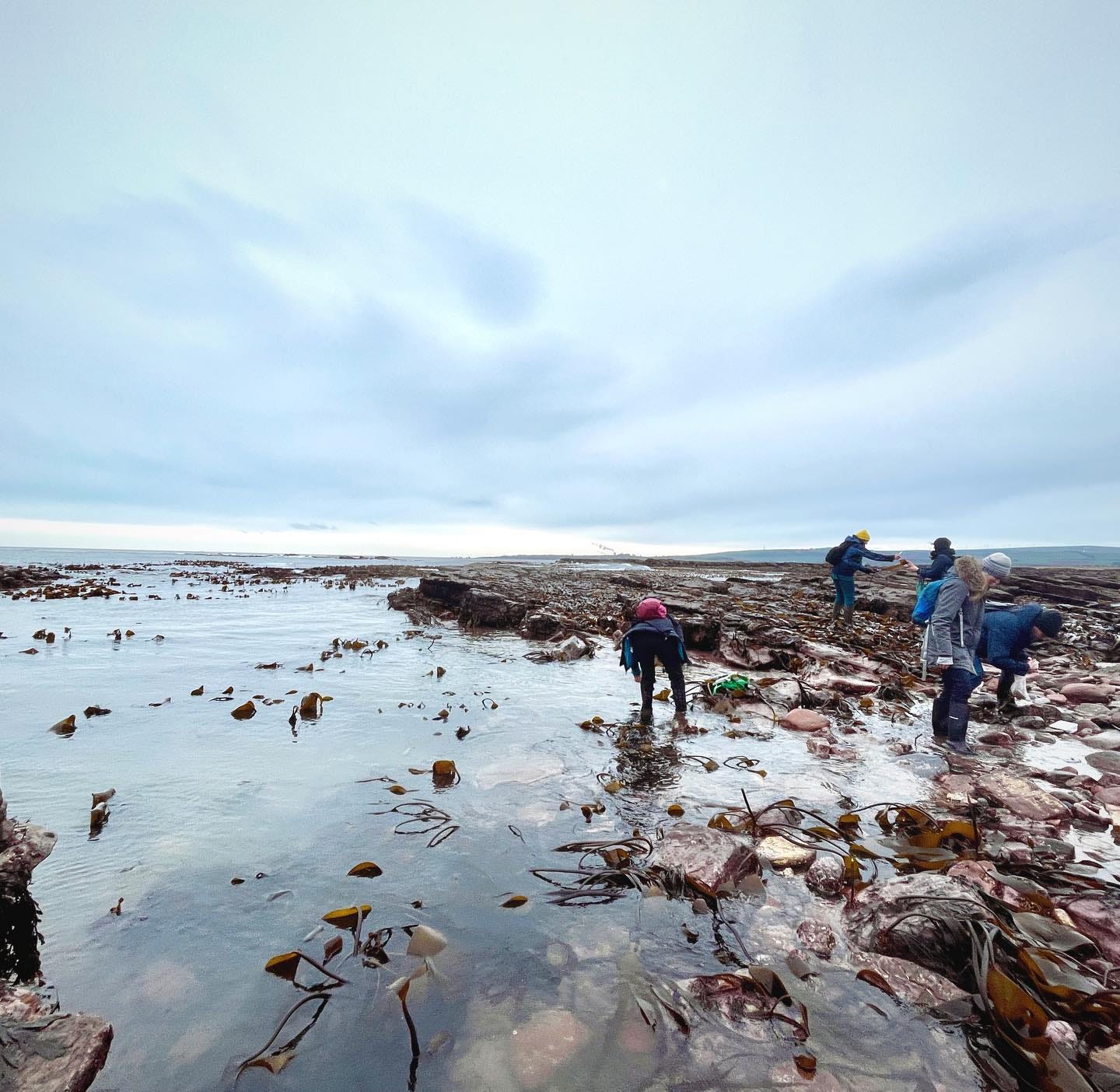

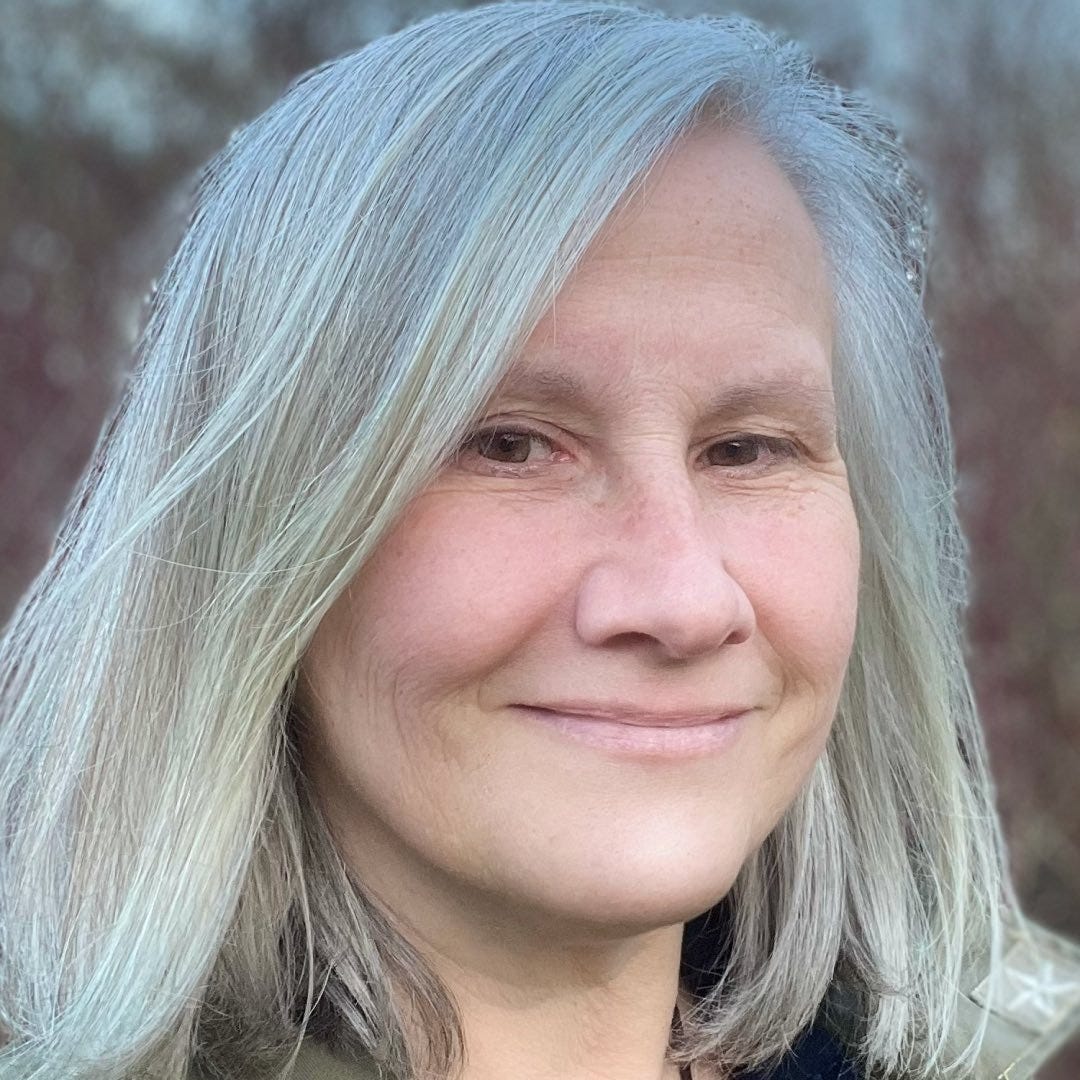

Hi Mo, I already made a small donation this morning after seeing your post on Insta. I love what you do and have learned so much from following the Wildbiome project. I have started learning about local wild plants in my area, and have begun using some of them as food and medicine. Nature is so generous, even during our current climate crisis. I look forward to watching the documentary when it is released. Best wishes to you! 💕